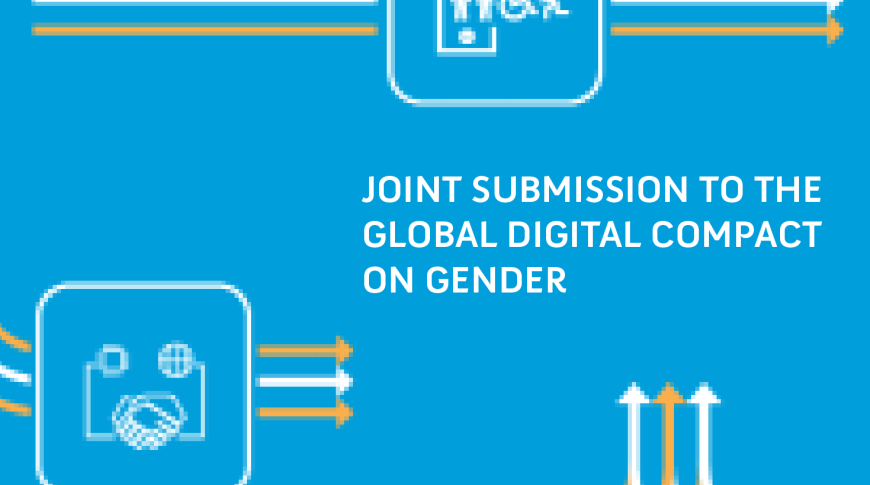
This joint submission is a response to the Global Digital Compact (GDC) consultation process and its expected outcome to outline shared principles for an open, free and secure digital future for all, with an expectation of having a Compact that has an intersectional gender perspective that takes into account the needs of women and girls, in all their diversity. This submission is one of the outcomes from a Global Digital Compact consultation that was held during the 67th session of the Commission on the Status of Women (CSW67) in New York on 14 March 2023 under the organisation of the Association for Progressive Communications and UNFPA. The consultation included the participation of organisations such as Access Now, Alliance for Universal Digital Rights, Amaranta NGO, Amnesty Tech, Body and Data, CEJIL, Digital Rights Foundation, Foundation for Media Alternatives, Global Digital Inclusion Partnership, KICTANet, Multitudes, Numun Fund, Point of View, Resurj, SANNOY, WO=MEN, Women at the Table and WOUGNET, among others.
As organisations that defend and protect the rights of women and people of diverse genders and sexualities, we believe that it is imperative to place the gender equality agenda at the heart of the Global Digital Compact as the Generation Equality Forum’s Action Coalition on Innovation and Technology for Gender Equality has urged. In order to do so, human rights must be placed at the centre of each one of the themes both in the offline and the online world. The GDC must be based on binding, universal standards that adopt a human rights-based approach and must also recognise the differentiated impact that information and communications technologies (ICTs) have on women, girls and people of diverse genders and sexualities. We dream of a future in which all individuals of the global digital ecosystem, no matter who they are or where they live, can enjoy equal rights to safety, freedom and dignity. This means equal and absolute protection from persecution, discrimination, abuse and surveillance; equal access to information, opportunity and community; and equal respect for privacy, identity, self-expression and self-determination. The core principles of the GDC of openness, freedom and security must be infused with an intersectional feminist perspective to ensure that the ongoing digital transformation of our economies and societies can usher in a gender-just world that is affirming to all individuals and their path to self-actualisation.
In order to do so, the UN Global Digital Compact must:
-
Recognise that there is a historically unequal power relation between men and women and, therefore, women and people of diverse genders and sexualities face a recurrent systemic gender-based discrimination.
-
Tackle the systemic and structural injustices in the digital society and economy stemming from the unbridled power and market excesses of the transnational platform business model.
-
Be grounded in values, actions and institutions resolutely committed to a gender-transformative digital paradigm that advances the rights, dignity and agency of all people in all their diversity.
-
Be founded on a binding human rights framework for a gender-just digital society and economy with concrete commitments for actions by state parties and transnational corporations to advance human rights of women and trans and gender-diverse persons, especially those in the Global Majority.
The feminist internet that we wish to create works towards empowering more women and people of diverse genders and sexualities to fully enjoy their rights, engage in pleasure and play, and dismantle patriarchy. It integrates their realities, contexts and specificities, including age, disabilities, sexualities, gender identities and expressions, socioeconomic
Download the submission here.